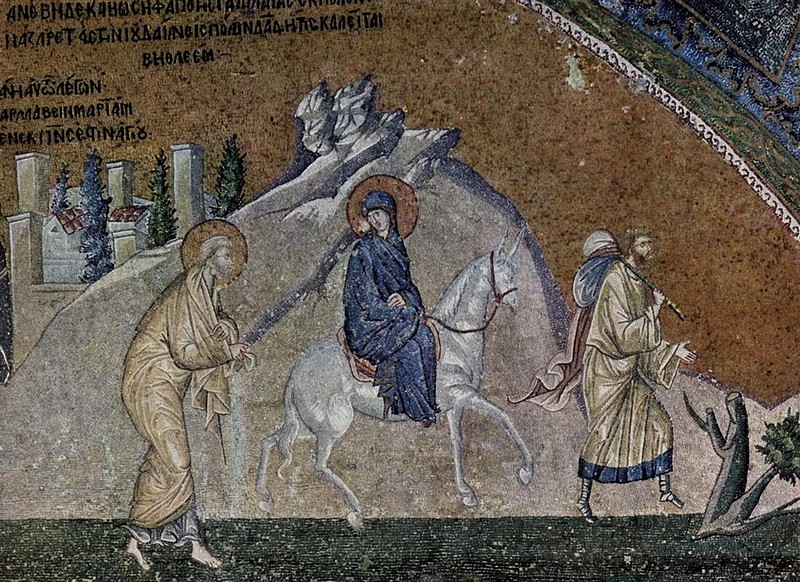
And it came to pass in those days, that there went out a decree from Caesar Augustus, that all the world should be taxed. [...] And all went to be taxed, every one into his own city. And Joseph also went up from Galilee, out of the city of Nazareth, into Judaea, unto the city of David, which is called Bethlehem; (because he was of the house and lineage of David:) o be taxed with Mary his espoused wife, being great with child. And so it was, that, while they were there, the days were accomplished that she should be delivered. And she brought forth her firstborn son, and wrapped him in swaddling clothes, and laid him in a manger; because there was no room for them in the inn.
Luke 2:1-7
From Nazareth to Bethlehem, Joseph and Mary traveled approximately 120 km on foot. Perhaps, at times, Mary was on the back of the donkey that carried the necessary load for the trip (a donkey that Luke does not name, but which it is logical that they carried and is part of the collective imagination). Even so, it was a very hard journey for a woman who was about to give birth.
The poet Francisco de Ocaña captures Joseph’s concern in a poem called “Camino de Belén” that would be part of the (Songbook to sing the night of Christmas, 1603). I utilize the conditional because I was unable to contrast the reference. Joseph is overcome by his wife's tiredness, and he encourages her by saying that they are already close, that in Bethlehem they have relatives who will welcome them, and that he would give everything he has to see she has already given birth.
The Spanisches Liederbuch by Emanuel Geibel and Paul Heyse includes the German version that Heyse made of the Spanish poem, and thus we reach the beautiful and moving song by Hugo Wolf, Nun wandre, Maria, a pearl that we will hear performed by Olaf Bär and Geoffrey Parsons.
Have a wonderful Christmas. May the love and tenderness of this song accompany us throughout the year.
Nun wandre, Maria,
nun wandre nur fort.
Schon krähen die Hähne,
und nah ist der Ort.
Nun wandre, Geliebte,
du Kleinod mein,
Und balde wir werden
in Bethlehem sein.
Dann ruhest du fein
und schlummerst dort.
Schon krähen die Hähne
und nah ist der Ort.
Wohl seh ich, Herrin,
die Kraft dir schwinden;
Kann deine Schmerzen,
ach, kaum verwinden.
Getrost! Wohl finden
wir Herberg dort.
Schon krähen die Hähne
und nah ist der Ort.
Wär erst bestanden
dein Stündlein, Marie,
Die gute Botschaft,
gut lohnt ich sie.
Das Eselein hie
gäb ich drum fort!
Schon krähen die Hähne
und nah ist der Ort.
Journey onward now, Mary,
just continue onward.
The roosters are already crowing,
and our destination is close.
Journey onward, beloved,
you my precious jewel,
And soon we will be
in Bethlehem.
Then you will rest well
and slumber there.
The roosters are already crowing,
and our destination is close.
Well do I see, my Lady,
that your strength is dwindling,
And I know your pain,
ah, can hardly be overcome.
Have confidence! We will find
shelter there.
The roosters are already crowing,
and our destination is close.
If only your hour [of need]
could be past, Mary,
I would amply reward the bearer
of such good tidings.
This little mule here
I would gladly give away to him!
The roosters are already crowing,
and our destination is close.
(translation by Emily Ezust)


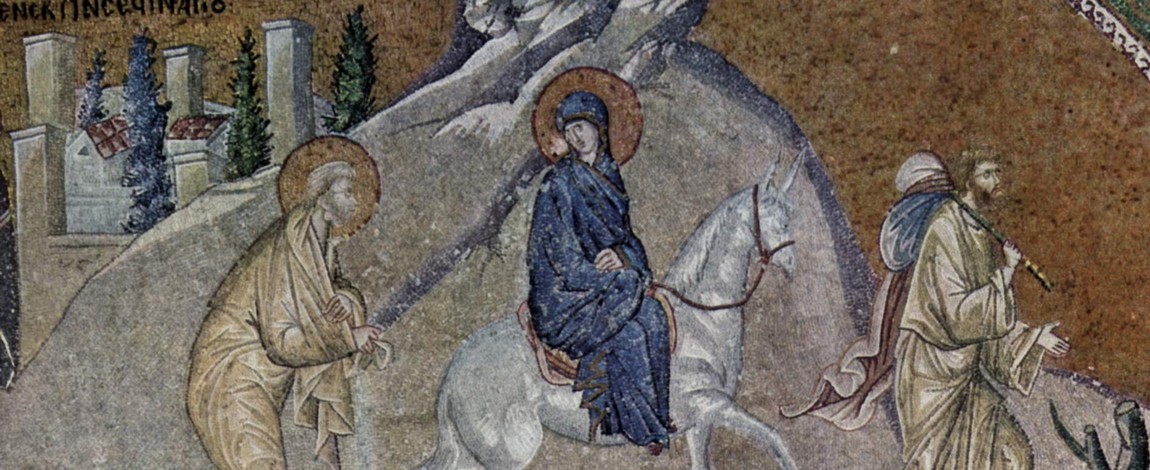
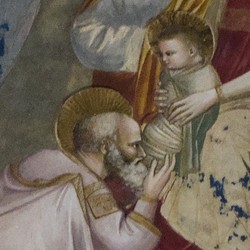
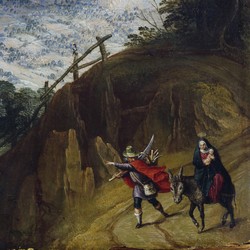
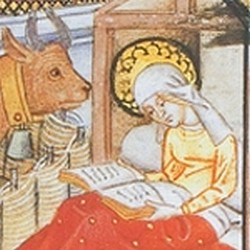












Comments powered by CComment